News
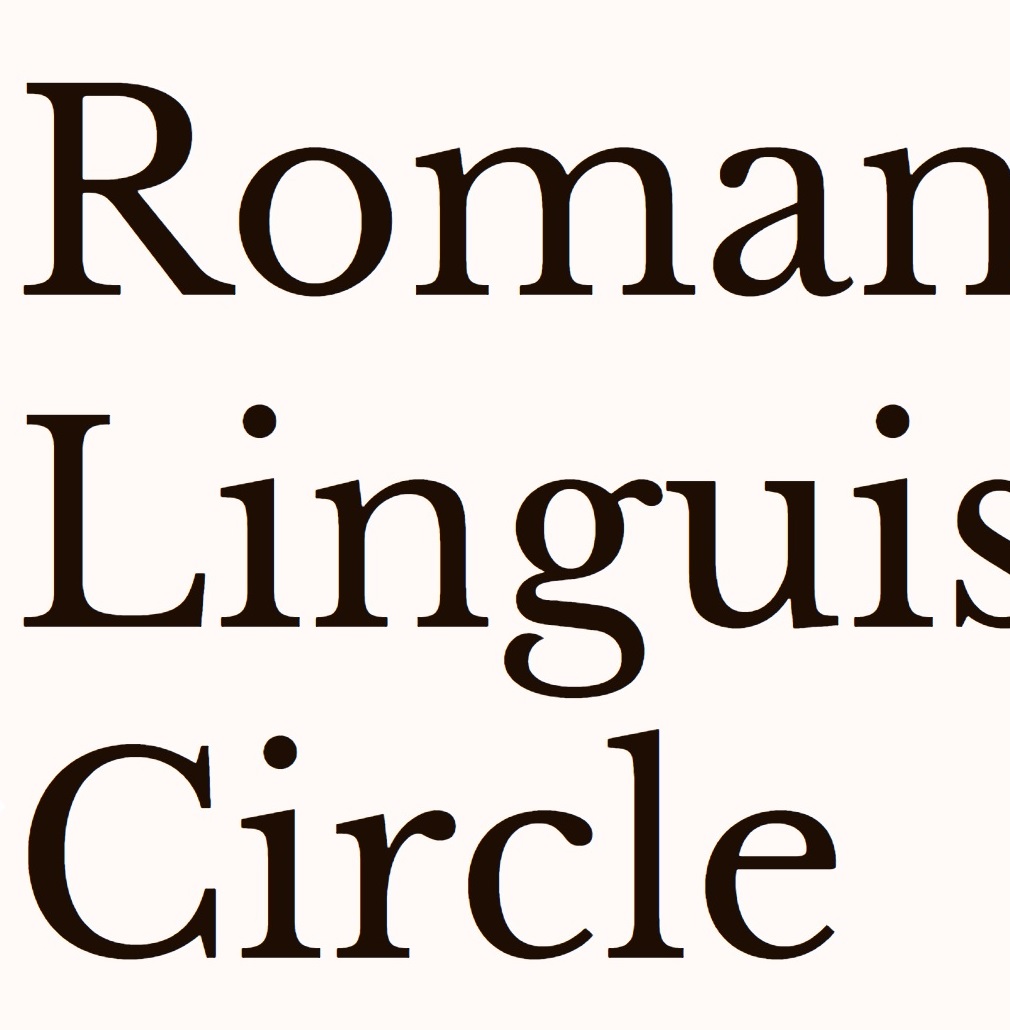
RoLinC: Nigel Vincent
Speaker: Nigel Vincent (University of Manchester) Title: Finiteness and suppletion: evidence from Romance Time: 2-3 pm Place: Register here (online) Abstract: In this talk I will continue the line of argument developed in Micali et al (2025) and explore the way suppletive patterns split across sub-domains of the verbal paradigm and according to the different functions (main verb vs…
Read more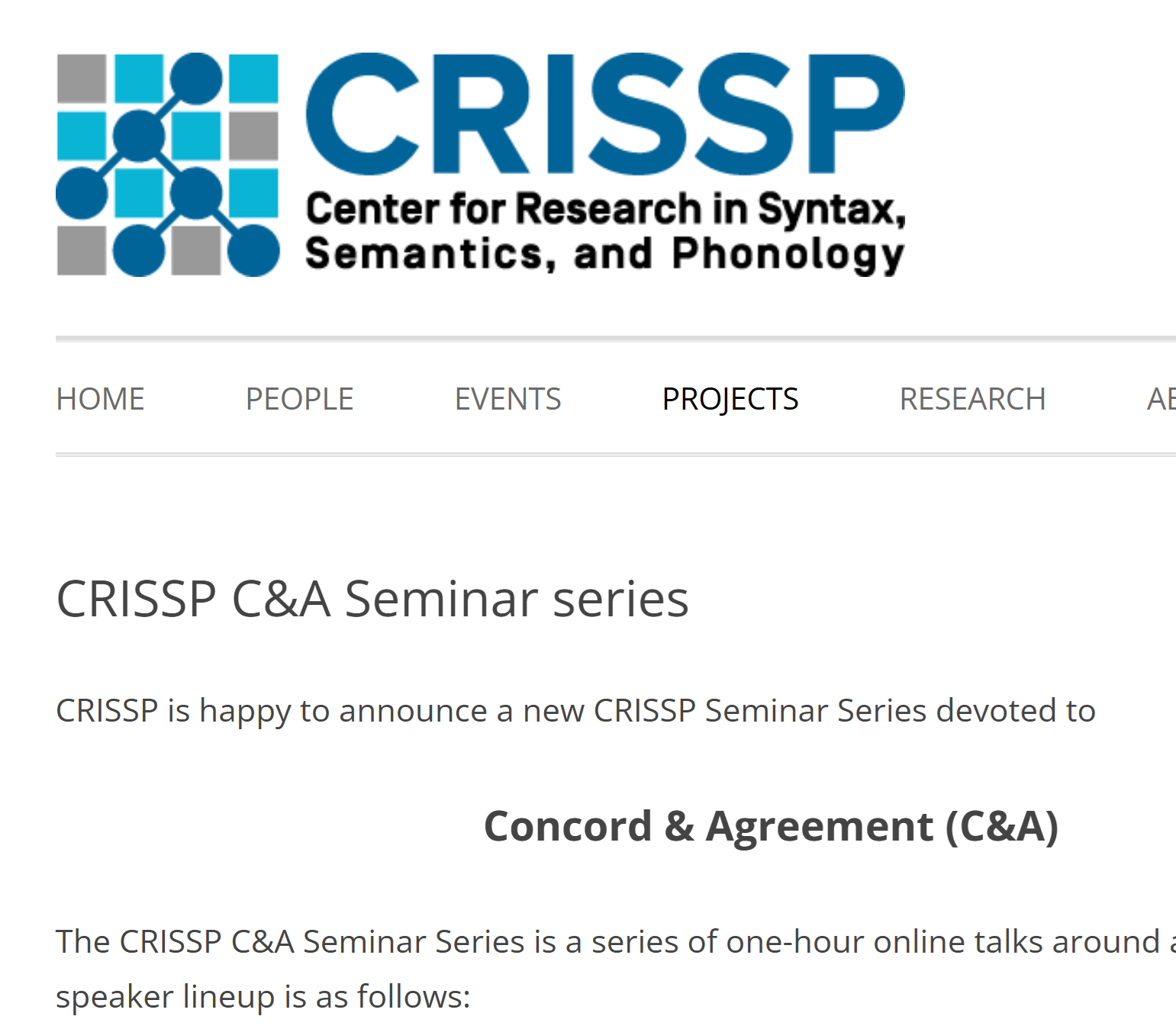
CRISSP C&A Series: Ivona Kučerová
Speaker: Ivona Kučerová Title: Not all probes are equal, or are they? Date & time: Thursday 13 November 2025, 15.00-16.30 CET Zoom link: please contact the organizers
Read more
IC Bilingualism Series talk: Laura Domínguez
Speaker: Laura Domínguez (University of Southampton) Title: Losing your native language: the ‘dark’ side of bilingualism Time and place: Wed, 12th Nov. 2025, 7pm, Zoom. If you wish to attend, please register here [You can watch previous IC Bilingualism Series talks, including Sorace’s in-person talk from February 2025, on YouTube]
Read more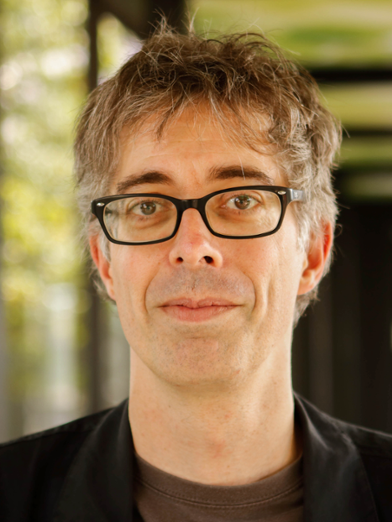
SIL talk: Olaf Koeneman
Speaker: Olaf Koeneman (Radboud University) Title: Pro drop as an interaction of morpho-syntactic and acquisitional constraints Place/Time: t.b.a/MS Teams, 4pm If you wish to attend and are not in the SIL teams, please contact the organizers
Read more
SIL talk: Joanna Wall
The next Syntax Interface Lecture will take place on Thursday, November 6th, from 16:00 until 17:00 in our Syntax Interface Lectures team on MS Teams. We will host a talk by Joanna Wall (Saarland University) with the title ‘Plurality in the Label-Less Grammar Model’. Plurality in the Label-Less Grammar Model In generative syntax, a core role…
Read more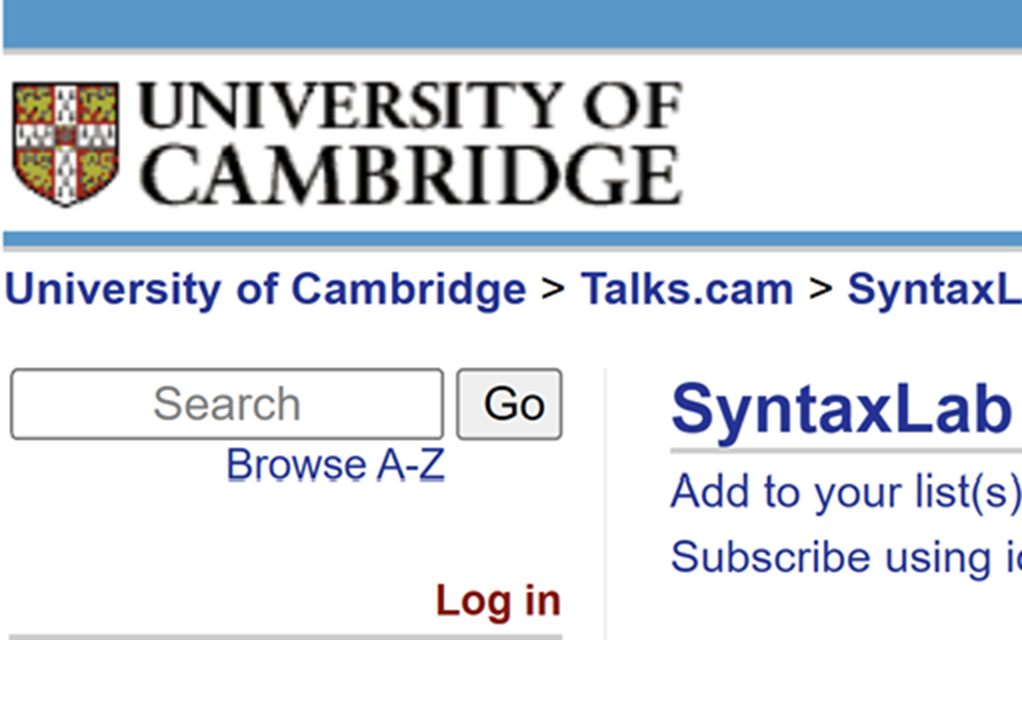
Syntax Lab: Oddur Snorrason and Squid Tamar-Mattis
TODAY! (4 November) Speaker: Oddur Snorrason (QMUL) and Squid Tamar-Mattis (Yale) Title: Germanic pseudo-coordination and bare verb constructions as distinctness repairs Time: 4-6pm Place: English Faculty, G-R05 and here (hybrid)
Read more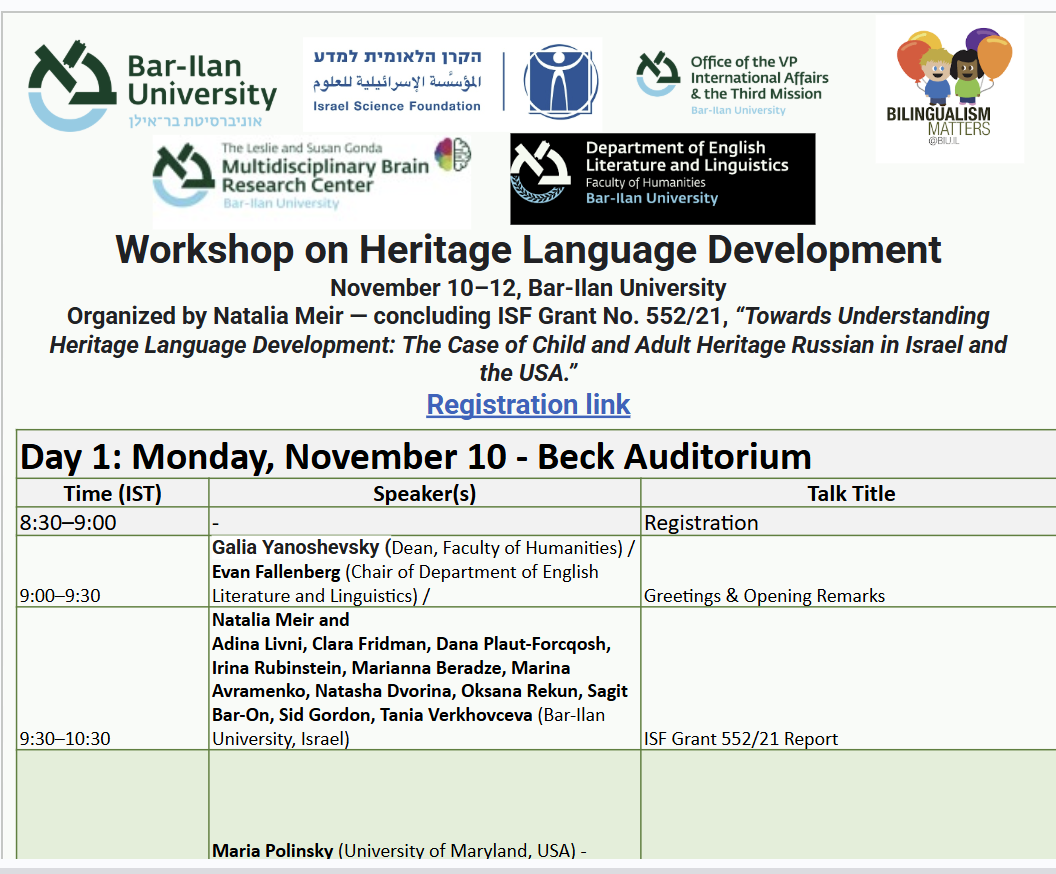
Workshop on Heritage Language Development
The Workshop on Heritage Language Development will take place on November 10–12, 2025, at Bar-Ilan University and will also be streamed live via Zoom. Here is the link to the program. This three-day workshop brings together leading scholars to explore bilingualism, grammatical structure, language change, and identity in heritage speakers. Keynote speakers: · Maria Polinsky – University of Maryland, USA…
Read more
